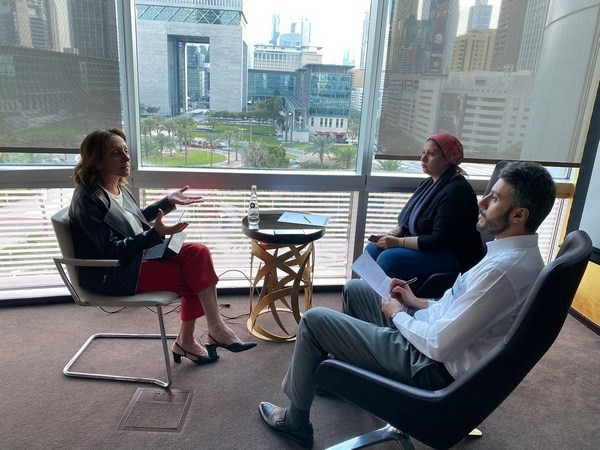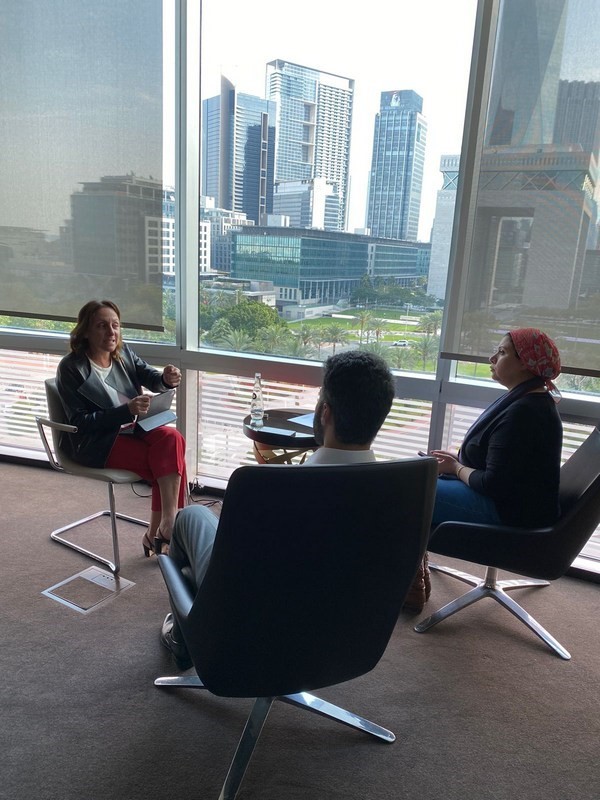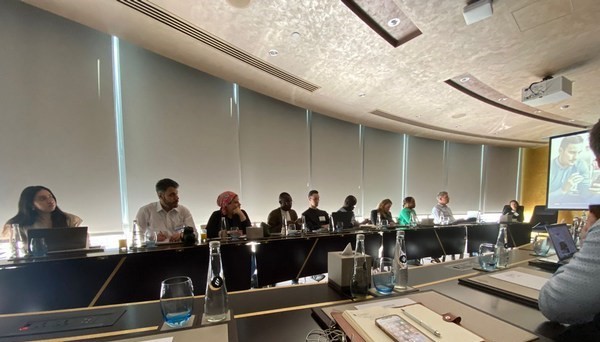DUBAI — In a series of strategic moves in North Africa, the
Levant, and Pakistan (NALP), Visa is becoming especially vital in leveraging
and pushing forward the digitalized world. Under the leadership of Leila
Serhan, these initiatives are both hard and exciting, with a clear objective to
drive Visa's development by encouraging cross-sector relationships and aligning
with national digital agendas.
اضافة اعلان
Digital transformation in Jordan and Egypt: A step forwardSo how is Visa getting there? Financial inclusion.
Serhan emphasized that Jordan and Egypt while facing
particularly hard times, came back on top after the COVID-19 Pandemic. This
included both governments and Central Banks in implementing digital banking
rules, which was a critical step in preserving the economy.
These initiatives not only reduce the cost of banking for
impoverished people but also widen the scope of financial services beyond
simple transactions.

Visa offers an opportunity to offer bespoke solutions and
harness technology to reach clients where they are.
Infrastructure and innovation: the foundation of digital
services
Moreover, despite unequal infrastructure distribution the
widespread and accessibility of mobile phones has created a unique opportunity
for banks. Through this accessibility, where a recent statistic highlighted
that 7.41 billion people own cellphones worldwide, Visa focuses on developing
accessible solutions, acknowledging the need for financial education alongside
technical growth. Initiatives aimed at youth and small enterprises seek to
smooth the transition to digital money management by establishing a foundation
of knowledge and trust.
Jordan's digital landscape: navigating via innovation
One of the most recent embraces of taking your mobile phone
and having accessibility at a click is the Kingdom’s recent embrace of Apple
Pay and Google Pay demonstrates its digital aspirations. Serhan outlines Visa's
strategy for improving security with AI and risk management technologies,
highlighting the relevance of tokenization in transaction protection. The
introduction of 'tap to phone' technology demonstrates Visa's dedication to
tailoring payment methods to local requirements, assuring security and convenience
for both businesses and customers.
 The function of super apps and security measures
The function of super apps and security measures
Serhan recognizes the promise of super applications in
Jordan, provided that security problems are handled via comprehensive solutions
such as tokenization. The seamless experience provided by technologies such as
Apple Pay and Click2Pay demonstrates Visa's emphasis on user convenience while
maintaining security.
Enhancing security and trust: a core focus
However, you may be reading this and wondering, okay this is
great, but what about security? Security, a critical idea is also highly valued
in Visa’s operation with over $10 billion spent annually on security
operations, and includes security from the start of product development. This
comprehensive strategy goes beyond technology, stressing the need for a safe
environment and increased customer awareness.
Tokenization and digital banking: increasing Egypt's
financial inclusion
Serhan advocates for an increase in tokenization and digital
banking in Egypt, emphasizing the potential to spread digital payment solutions
outside large cities. Collaborations with the government and the commercial
sector seek to address urgent challenges like as cross-border remittances and
subsidy distribution, proving Visa's commitment to financial inclusion and
economic development.
Embracing e-wallets in Jordan: A growth strategy
Addressing the popularity of e-wallets in Jordan, Serhan
discusses Visa's collaborations with telecom firms such as Orange Money. By
incorporating Visa's dispute resolution capabilities into e-wallet
transactions, users enjoy an additional layer of fraud protection, boosting
confidence in digital payments.
Future collaborations: improving Visa's impact
Serhan promotes existing and planned cooperation with
governments and the commercial sector, to improve digital experiences for both
consumers and enterprises. Projects such as the citizen card in Port Said and
efforts to encourage tourism via digital payments are examples of Visa's
diverse approach to helping regional economic growth and digital
transformation.
 Adapting to challenges: A vision for the digital future
Adapting to challenges: A vision for the digital future
But there is a long road ahead, Serhan, while emphasizing
the Visa’s successes, also points out the many issues facing current times such
as macroeconomic volatility and the global cybersecurity environment. Visa's
proactive security posture, partnership-driven strategy, and technological
investment demonstrate the company's commitment to ensuring a resilient,
inclusive, and digitally empowered future for the NALP area.
Who is Leila Serhan?
Leila Serhan is now the Senior Vice President and Group
Country Manager for the North Africa, Levant, and Pakistan (NALP) area, which
includes five regional offices and 15 countries in total. Her primary emphasis
is on driving Visa's business development in these regions, working with key
stakeholders from financial institutions, government organizations, and
partners. This aligns with Visa's broader mission to empower people, companies,
and economies.
Serhan brings over twenty years of leadership experience,
including a significant tenure at Microsoft where she led the company's public
sector business across the Gulf and served as General Manager for North Africa,
the Middle East, and Pakistan, to drive digital transformation across various
sectors. She is a strong supporter of women's empowerment, co-chairing the Visa
Women Network in the CEMEA area, serving as President of the Women in IT
Association in Lebanon, and actively supporting regional companies as a
Business Angel.
Serhan is a proud alumnus of the American University of
Beirut, where she received a bachelor's degree in Business Administration,
setting the framework for her successful career.
Read more Business
Jordan News



